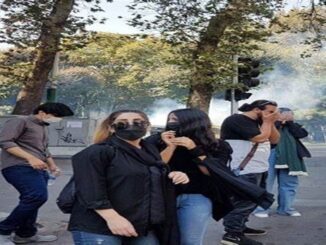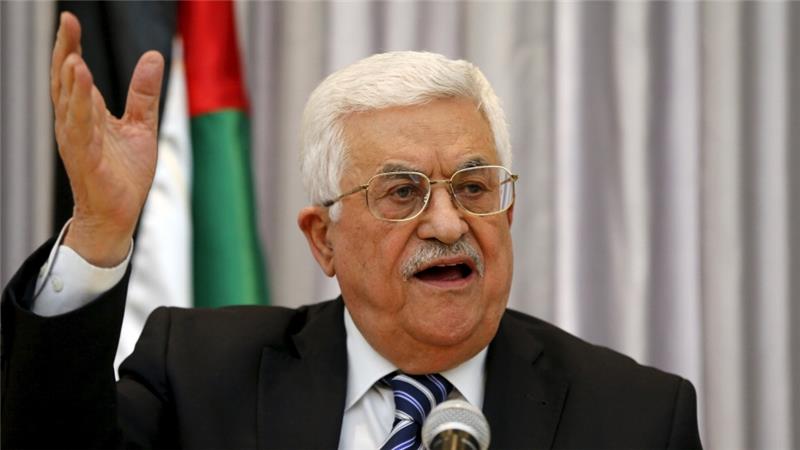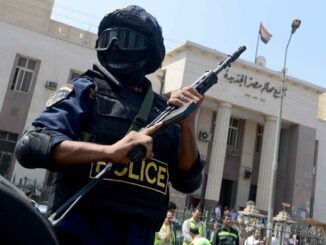
BY: Merve Şebnem Oruç*
You don’t come across such things in Erbil. It is as if Erbil and Duhok are paradise within Iraq. But as soon as you leave, you start to fear for your life. You are unsure about what your name or sect should be or what answer to give when an armed person stops you and questions you. If the person standing across from you is a Shiite and your name is Umar or Uthman, you could die; but if your name is Ali or Hussein, you will live. If the person standing across from you is Sunni, it could be the exact opposite.
I was in Iraq at the dawn of the Mosul operation that started toward the morning on Monday and I visited three provinces in three days. The operation title is “fighting Daesh,” yet during conversations discussing the contents of the operation and what is happening in Mosul and Iraq, the word “Daesh” holds a very minor room within the word cloud. The words “Shiite,” “Sunni,” “Kurd,” “Arab,” “Saddam,” “pro-Saddam,” “massacre,” “death,” “war,” Iran” are the words that are mentioned the most. You can even understand after a simple word analysis that “fighting Daesh” is a cover that is drawn over a sectarian war, to prevent anyone from seeing the real issue, from seeing what lies behind. And it is working too; for instance, the Shiite militias are committing the same number of massacres – and even more – while retaking the cities, in the operations they are involved in, as Daesh did when it returned from Syria to Iraq in 2013-2014. But nobody knows about this except the Iraqis. The world is told that Salahuddin, Anbar, et cetera, were liberated from Daesh, but nobody is saying how many Sunnis were killed – without distinguishing women and children – in the meantime. According to what is told in Iraq, for example, when Salahuddin was being “liberated,” almost 2,500 people from a huge Sunni tribe were slaughtered, regardless of being young or old, man or woman. The remaining people are left alive only because a telephone call that was received from Baghdad said, “This much is enough.” I ask about the day the anti-Nouri al-Maliki civil protest camp in Hawijah was raided in 2013 by the Iraqi military and militias and hundreds of people were killed. They reply: “This is why Daesh was considered a savior when it first appeared. The people thought, ‘These ones are bad, too, but at least they will not kill us for being Sunni.’”
When you ask, “Who started it?” their opinion is common. It is said that the Shiite vengefulness started to turn into violence during the time of Ibrahim al-Jaafari, the current Iraqi foreign minister, and got out of control during Maliki’s term. The response a 65-year-old Kirkuk local, who fought for the Iraqi military for 27 years, gives to the question, “Why has Iraq come to this state?” is quite saddening: “I fought against Iran in the Iran-Iraq war for eight years. Now Iran is here. What did I fight for? We toppled Saddam [Hussein]. One Saddam is gone, but another 80 Saddams have come. Everyone is working for their own personal gains and for their own party. They all have owners and most of them are owned by Iran. It is the parties that have brought Iraq to this state.”
Each one of the more than 40 Shiite militia groups that have united under the Hashd al-Shaabi umbrella today, declaring war against Sunnis under the pretext of fighting Daesh, really are offshoots of parties. The termination of these militia groups by parties came up on the agenda many times, yet each time they became stronger. In other words, the form the U.S. brought “democracy” to Iraq is the main reason behind everything that is happening today. Another Kirkuk local’s answer to, “What will save Iraq?” was, “We need a leader. We need a powerful leader who loves Iraq, not other and himself.”
The unanimous response we received when we asked, “Are you hopeful of the Mosul Operation?” was, “The war with Daesh will end and a new war will start.” Almost everybody is aware of the Hashd al-Shaabi’s strength and al-Abadi’s weakness and think Iran will not give up. They believe that Mosul is the last area in Iraq left for Sunnis and when they lose that, Sunnis will have no choice in Iraq but to either become radicals or refugees outside of Iraq. However, this is not the sole concern. They believe that the Shiite militias will not stop after Mosul and turn toward Kerkuk, Duhok and Erbil. This is something that is already frequently implied by the Hashd al-Shaabi militias. The general view is that the “Shiite-Sunni” war will be followed by the “Kurd-Shiite” war. Meanwhile, even though some Kurds think there will be no other Kurdish infighting, the majority of them project that a “Kurd-Kurd” war might also break out. To sum it up, the realities in Iraq are much darker than what we see, people are in more despair than we think.
*Merve Şebnem Oruç is a Turkish journalist and columnist.
(Published in Yeni Şafak Turkish newspaper on Thursday, Oct. 20, 2016)



